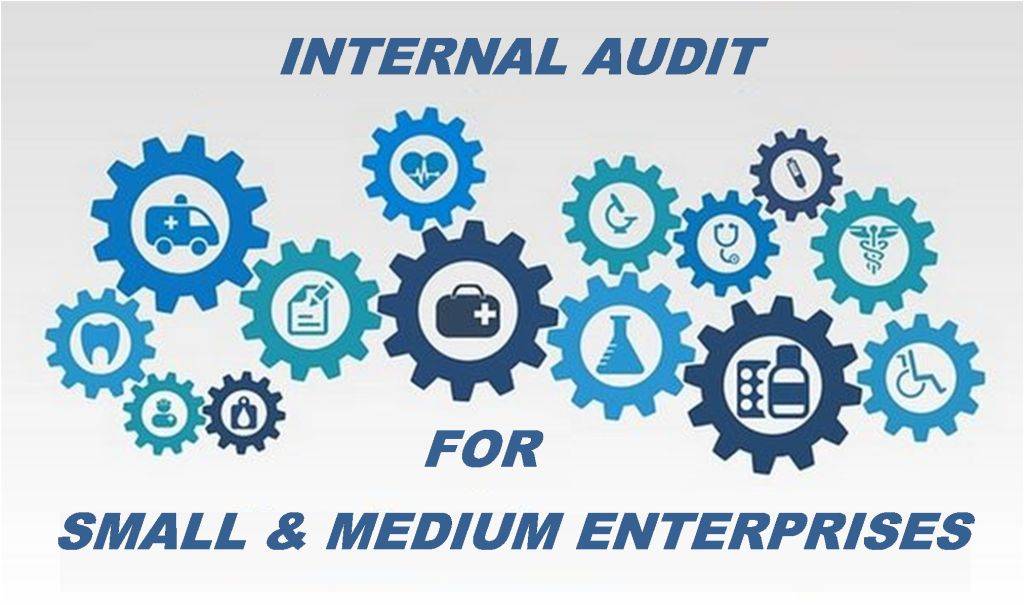In today’s complex businesses environment, it is imperative that your business is well monitored, controlled and maintains adequate operational excellence to endure and improve on bottom-lines. Internal Audit, if utilized optimally, can assist the management to achieve its strategic and operational objectives. This is more particularly required in SMEs since due to lack of appropriate resources, these units are more vulnerable for adding intangible costs through repeated mistakes, employee incompetency, inadequate processes, exposure to various risks etc. Internal audit, if used to its potential can assist the management in risk identifications & mitigations, process & controls improvement and identification of avoidable costs etc. Following Para’s’ explains how contemporary internal audit techniques helps SME in bringing continuous improvements in SMEs.
Misconceptions about internal audit in SMEs:
The fallacy carried for the internal audit in small and medium industries that it is only a supporting function to accounting. It is treated as a sibling to statutory audit. It is always being considered for routine vouching, direct & indirect tax calculations and checking for some accuracy of data which management wants in any function. Unfortunately, in SMEs, it is not treated as separate function which, if given proper respect and importance, is only going to assist management in pulling off long term value.
Internal audit explained
According to ICAI definition, Internal audit is considered as, an independent management function, which involves a continuous and critical appraisal of the functioning of entity with a view to suggest improvements thereto and add value to and strengthen the overall governance mechanism of the entity, including entity’s strategic risk management and internal control system
It is to be understood that it is a function of management which require that internal audit should focus on the continuous improvement in control procedures applied in an entity, uncover risk areas and add worth to business and governance process.
New dimensions of Internal audit
The modern internal audit is being looked at as a consulting activity which directs its focus towards achievement of long term objectives of the organization. With growing complexities in business environment in industries all over have realized the pressing need to have Internal Audit to help the Management at all levels in controlling the activities in the right direction. It is now knowledge based area and must be used to its fullest aptitude.
The main duties and functions of Internal Audit other than audit financial audit, inter alia, are broadly classified as under:
i) Process & Systems Audit
ii) Operational Audit including Efficiency Audit
iii) Management function Audit
iv) Audit for Compliance to policies, Laws and best practices
v) Performance measurement audit
What necessitates internal audit in SMEs:
SMEs by virtue of their small size or for other limitations are generally vulnerable for
1) Internal Control failures
2) Non implementation of strategic plans of the organizations.
3) Existence of improper or non standardized procedures & non documented procedures
4) Overdependence on people
5) Operational dis-continuity
6) Quality defects in processes, products which adds intangible costs
7) Improper resource utilization
8) Improper strategic focus
9) Employee frauds and other opportunity frauds
10) Improper compliance etc. Hence owners are unwarrantedly getting dragged to routine matters rather than concentrating on strategic issues like business planning, pricing, strategic alliances, building competencies, branding etc. Modern internal audit techniques can assist the management in achieving all the above listed deficiencies and assist the owners in setting up processes for long term benefit; achieve long term strategic and operational objectives, cost control measures, timely compliance and continuous monitoring of operations.
Value additions through techniques covered in modern internal audit
1. Streamlining accounting and financial reporting
2. Internal control reviews all across functions of the enterprise
3. Critical analysis of processes followed in organizations
4. Monitoring of cost and revenue drivers
5. Risk identification all across enterprise
6. Compliance of laws and Tax planning
7. Critical analysis of operational efficiency of enterprise resources by applications of TQM and Lean management tools
8. Data analysis and business intelligence
9. Enterprise Performance measurement
10. Prevention of frauds
11. Effective use of information systems through IT audit
SME owner’s perspective for internal audit Vs actuality:
Since there is less awareness of focus of modern internal audit and its techniques among SME owners, internal audit is treated as internal audit cost center rather than value centre. Actually, there should be strong monitoring function in the internal audit who will act as overseer the enterprise processes and candid performance. Here it reminds me words of legendary banker Mr Uday Kotak, owner of Kotak Mahindra bank, who said, “we have employed one person at strategic level, who only asks the question “WHY” for every decision taken by us”. According to him, by answering his question, helps the bank to take cautious and informed decisions in business. The aim is not to dilute the decision power of the owners, but to add support to owners to take proper strategic and operational decisions. Internal auditor can play role of such questioner in an organisation. It always helps to implant monitoring function in the business with other verticals. It is upto owners to use the skills of the internal auditor to fullest extent to draw comprehensive worth. Ultimately,
GROWTH IN THE BUSINESS IS CERTAIN IF MONITORED PROPERLY
